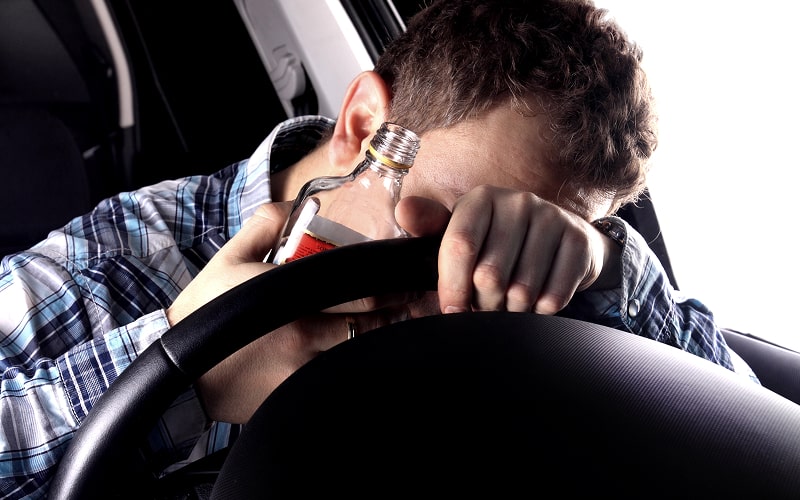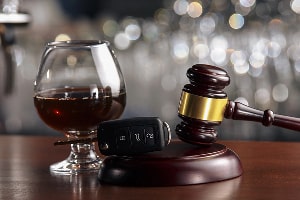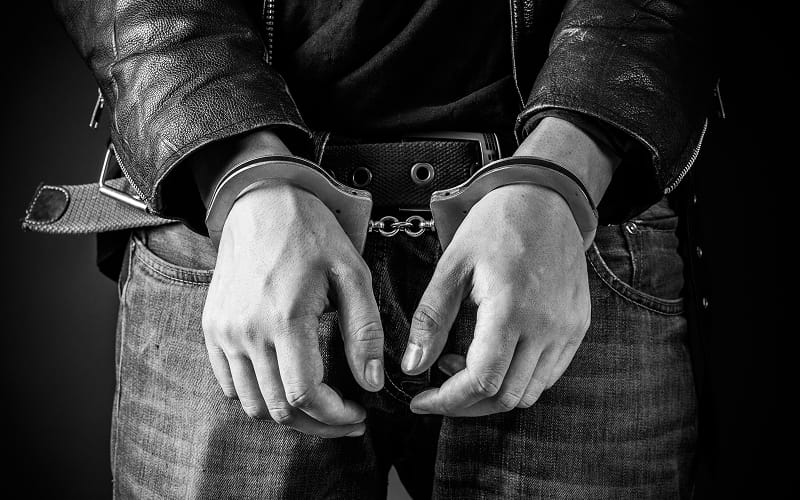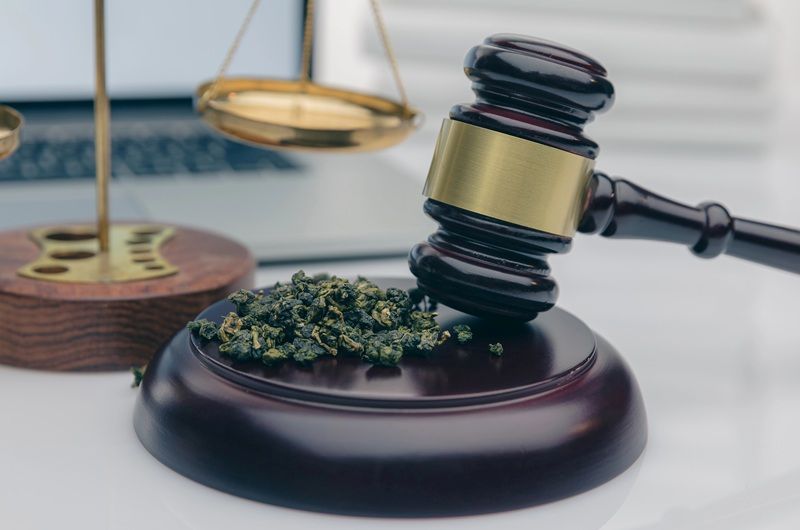Being arrested for DUI with a 0.07% BAC can be both confusing and frustrating. Many drivers assume that staying below the legal limit of 0.08% protects them from charges, but that is not always true. Virginia law allows DUI charges even when a driver’s BAC is under 0.08% if additional evidence suggests impairment.
If you or someone you know is facing a DUI charge at 0.07% BAC in Fairfax County, understanding the law is critical. A DUI conviction can result in serious penalties, even at a seemingly low BAC level. This article breaks down how Virginia law handles DUI arrests with a 0.07% BAC, potential legal consequences, possible defenses, and underage DUI laws.

Understanding BAC Levels & DUI Charges In Virginia
Many drivers believe that DUI charges only apply at or above a 0.08% BAC, but that’s a common misunderstanding. Virginia law sets the legal BAC limit at 0.08% for drivers over 21, but this does not mean drivers with lower BACs are immune from DUI charges. Law enforcement officers can arrest a driver for DUI at any BAC level if they believe there is enough evidence of impairment.
Virginia also enforces a zero-tolerance policy for underage drivers. For those under 21, a BAC of just 0.02% is enough to warrant a DUI charge. This strict policy highlights Virginia’s stance on impaired driving, even when alcohol consumption is minimal.
BAC alone is not the sole determining factor for a DUI charge. Police officers assess a driver’s behavior, physical signs of intoxication, and performance on field sobriety tests. Signs such as slurred speech, bloodshot eyes, unsteady movements, or reckless driving can strengthen a DUI case.
Field sobriety tests, including the walk-and-turn and horizontal gaze nystagmus tests, help officers evaluate coordination and cognitive function. Even if a driver’s BAC is below 0.08%, poor performance on these tests can lead to an arrest. Understanding how officers assess impairment is key to building a strong defense.
The law allows for DUI arrests at lower BAC levels based on additional evidence of impairment. This brings us to the legal consequences and implications of a 0.07% BAC arrest.
Legal Implications Of A 0.07% BAC Reading
A 0.07% BAC may seem like a safe number, but in Virginia, it does not guarantee protection from a DUI charge. Many drivers assume that falling below the legal limit of 0.08% means they cannot be arrested.
However, Virginia law allows DUI charges even at lower BAC levels if law enforcement believes there is enough evidence of impairment. This means drivers must be aware of how the law applies and what consequences they may face.
Understanding the legal implications of a 0.07% BAC requires examining how Virginia courts handle these cases. Unlike a BAC of 0.08% or higher, which automatically presumes impairment, a 0.07% BAC does not establish guilt or innocence.
Instead, prosecutors rely on additional evidence such as driving behavior, field sobriety test results, and officer observations to build their case. Because the law does not presume impairment at this level, the outcome of these cases depends on the strength of the evidence presented.
Rebuttable Presumptions In Virginia Law
The Virginia Code outlines different legal presumptions based on BAC levels. A BAC of 0.08% or higher creates a presumption of impairment, making it easier for the prosecution to prove guilt. On the other hand, a BAC of 0.05% or lower creates a presumption of non-impairment, which can work in the driver’s favor.
At 0.07%, there is no automatic presumption either way. This places the case in a legal gray area where the prosecution must establish impairment through other means. Without strong supporting evidence, a DUI conviction at this BAC level is harder to secure.
Potential Consequences Of A Dui Conviction At 0.07% BAC
A DUI conviction, even at 0.07% BAC, can carry serious penalties. Consequences may include fines, mandatory alcohol education programs, and driver’s license suspension. Additionally, the long-term effects of a DUI conviction such as increased insurance rates and a criminal record can impact employment and personal life.
Because the law does not automatically assume impairment at this BAC level, drivers have a stronger chance of fighting the charge. Thus, a well-prepared legal defense is critical to protecting their future.
Defending A DUI Charge With A 0.07 BAC
Being charged with DUI at a 0.07% BAC presents unique legal challenges. While Virginia law does not automatically presume impairment at this level, prosecutors can still build a case based on additional evidence. This means drivers must prepare a strong defense to challenge the accusations.
A successful defense strategy focuses on questioning the reliability of the evidence, the legality of the traffic stop, and any factors that may have influenced the arrest. Drivers increase their chances of avoiding a conviction by weakening the prosecution’s case. Below are key defense strategies that may effectively fight a DUI charge at 0.07% BAC.
Challenging The Evidence
One of the strongest defenses in a DUI case is challenging the accuracy of the evidence. Breathalyzer machines, commonly used to measure BAC, must be properly calibrated and maintained to produce reliable results. If there is any doubt about the accuracy of the device used during the arrest, the BAC reading may be inadmissible in court.
Similarly, field sobriety tests are highly subjective. Officers rely on these tests to assess a driver’s coordination and cognitive function, but factors such as fatigue, medical conditions, or nervousness can lead to poor performance. If the defense can demonstrate that external factors influenced the results, the prosecution’s case may weaken.
Highlighting Lack Of Probable Cause
A DUI charge can be challenged if law enforcement did not have a valid reason to stop the driver. Before making a stop, officers must have reasonable suspicion that a driver violated traffic laws or was impaired. If they cannot justify the stop, any evidence gathered during the encounter could be deemed inadmissible.
For example, if an officer pulled a driver over based on a minor, unrelated issue and then conducted a DUI investigation without proper cause, the defense could argue that the entire stop was unlawful. Suppressing key evidence due to an improper traffic stop can significantly impact the prosecution’s ability to move forward with the case.
Presenting Alternative Explanations For Observed Behavior
Many factors can mimic signs of impairment, leading to wrongful DUI arrests. Medical conditions such as diabetes, neurological disorders, or even allergies can cause symptoms that resemble intoxication. Additionally, fatigue, stress, or anxiety can affect coordination and speech, making a driver appear impaired when they are not.
Even environmental factors can play a role in DUI arrests. Poor road conditions, bad lighting, or uneven pavement can cause a sober driver to stumble during field sobriety tests. If the defense can present alternative explanations for the officer’s observations, it may raise enough doubt to challenge the DUI charge successfully.
A strong legal defense requires thoroughly examining all aspects of the arrest. By focusing on weaknesses in the prosecution’s case, drivers can improve their chances of a favorable outcome.
Underage Drivers & A 0.07 BAC
Virginia has strict laws regarding underage drinking and driving. The zero-tolerance policy means that drivers under 21 can be charged with DUI if their BAC is 0.02% or higher. This low threshold reflects the state’s commitment to preventing underage drinking and driving.
A BAC of 0.07% for an underage driver is well above this limit, making conviction more likely. Unlike adult DUI cases, the prosecution does not need to prove impairment beyond the BAC reading. This makes defending underage DUI charges more challenging.
Underage drivers convicted of DUI face serious consequences. Penalties include fines, mandatory alcohol education programs, and possible community service. Additionally, an underage DUI conviction often results in an automatic driver’s license suspension.
Beyond legal penalties, underage drivers may face disciplinary action from schools or employers. A DUI conviction can impact college admissions, job opportunities, and even future career paths. These lasting effects make hiring a skilled defense attorney essential.
Underage DUI cases require a different legal approach compared to adult cases. This is where Fairfax County Criminal Attorneys provides effective legal representation.
Fairfax County Criminal Attorneys: Advocating For Your Rights

Fairfax County Criminal Attorneys has extensive experience in DUI defense cases. We examine every detail of a case, from the initial traffic stop to the accuracy of BAC tests. By challenging weak evidence, we work to reduce or dismiss charges.
Each client receives a defense strategy tailored to their specific case. Whether negotiating plea deals or taking a case to trial, we fight to protect your rights. Strong legal representation is key to securing the best possible outcome.
We understand the stress of a DUI charge. Our attorneys provide clear communication, guiding clients through every step of the legal process. Clients can expect dedicated representation focused on achieving the best results.
With a reputation for aggressive defense strategies, we are ready to fight DUI charges. Anyone facing DUI charges should take immediate action to secure a strong legal defense. Contact us today and schedule an evaluation of your case.
A DUI arrest at 0.07% BAC can have serious consequences. Even though the BAC is below 0.08%, prosecutors can still pursue charges based on other evidence. Defending against these charges requires a strategic approach, focusing on weak evidence and legal technicalities.
Underage drivers face even stricter laws and harsher penalties. Legal representation is critical to avoiding long-term consequences. Fairfax County Criminal Attorneys is committed to helping clients fight DUI charges and protect their futures.




